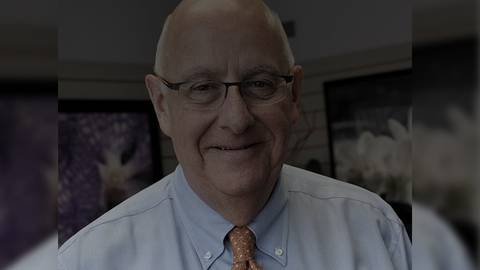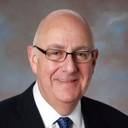Dr. Greenberg:
Coming to you from the ReachMD studios, this is COVID-19: On The Frontlines. I'm Dr. Michael Greenberg.
I want to talk about my experience and what it’s been like for the past week and how I've survived or how I'm surviving. I’m a dermatologist in Chicago. I’ve been in practice for 42 years. And when this virus hit, we weren’t expecting it, obviously. My practice went into high gear, meetings every day, what do we need to do to make your employees safe and ourselves safe, and I immediately noticed that half my partners decided that they wanted to close their offices entirely, not be there at all for their own personal safety. I understand that. My belief and philosophy is that I’m a doctor, I’m here to help, and if I can stay as safe as possible, I can be of service. The question was: Being a dermatologist, is this fluff? Do I really need to be open? Am I wasting resources? But the first week I’ve been open, I have had a number of patients with severe rashes or drug eruptions or problems that in the midst of my patient’s panic would take them to the emergency room, so, really, I’ve been doing a job of keeping people out of the ER, helping to stop the glut of patients showing up there and keeping them away from patients who might be infected with the virus. It was a decision that my wife was not happy with at first until she realized that this is who I am as a physician.
I’m glad I was in the office this week. I’ve probably seen about 20–25% of my daily patient load, and we’ve been switching over during the week to virtual visits, which I find really cool. My patients have been really grateful in telling us. I would say more than 50% of patients who leave my office thank the front desk that we’re here. Basically, the message that I’m getting is that we’re a ray of normality in a sea of panic behavior.
So, in the office, of course we’ve been spacing patients out, leaving the doors open so people don’t have to touch the doorknobs, staggering patients so that our waiting room doesn’t have people sitting there, and all in all it’s been a nerve-racking but a really satisfying experience.
I also find that I have lots of free time between patients in the office, and that can be nerve-racking. I have a choice. I can either go on eBay and buy stuff I don’t need or cruise around looking at the news, but what I’ve chosen to do in my free time is something that I learned a long time ago as a secret to getting out of my own head and my own fears. I’ll call up people I know, my partners, other doctors, other friends, people around the world and check on them and see how they’re doing. The best way I’ve found to get out of my head and my own fears is to focus on somebody else, and this is tried and true.
I also find it disheartening that physicians are hoarding potential medications. Let’s stop that. There’s no reason in this pandemic to hoard toilet paper or water. That I don’t understand at all, hoarding water, but I guess it’s just that people want something to do to be able to feel some sense of power, but the truth is we’re all powerless in this. Once I have accepted the fact that I have no control over this virus, I have no power, then I’m more free to behave without fear.
I also give my patients suggestions. I talk a lot to my patients about the virus and about their fears, and I’ve had people who are stuck home alone with nobody else in relatively small spaces and they’re going stir crazy, and the suggestion I’ve given to them is to get a white plastic garbage bag and a pair of gloves and walk around their block and pick up garbage. I’ve had multiple calls back as I’ve suggested this to people thanking me that it really works in helping people. So I think as physicians we have a responsibility not to just treat the medical issues of our patients but the emotional and the spiritual issues. We are not just authority figures. People come to us to feel better physically and, hopefully, mentally and emotionally better just by being in our caring presence.
For ReachMD this is COVID-19: On The Frontlines. For continuing access to this and other episodes and to add your perspective towards the fight against this global pandemic, visit us at ReachMD.com. Thank you for listening.


Facebook Comments